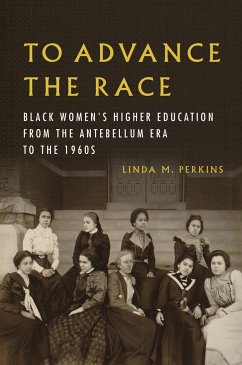"From the earliest days of the United States, African Americans considered education essential for their freedom and progress. Linda Perkins ranges across educational and geographical settings to tell the stories of Black women and girls as students, professors, and administrators. Beginning with early efforts and the establishment of abolitionist colleges, Perkins follows the history through the post-Civil War experiences of Black women at elite white schools and public universities in northern states. Their presence in emerging Black institutions like Howard University marked another advance, as did Black women becoming administrators. But such progress intersected with race and education in the postwar era. As gender questions sparked conflict between educated Black women and Black men, it forced the former to contend with traditional notions of women's roles even as the 1960s opened up educational opportunities for all African Americans. A first of its kind history, To Advance the Race is an enlightening look at African American women and their multi-generational commitment to the ideal of education as a collective achievement"--
Hinweis: Dieser Artikel kann nur an eine deutsche Lieferadresse ausgeliefert werden.
Hinweis: Dieser Artikel kann nur an eine deutsche Lieferadresse ausgeliefert werden.








